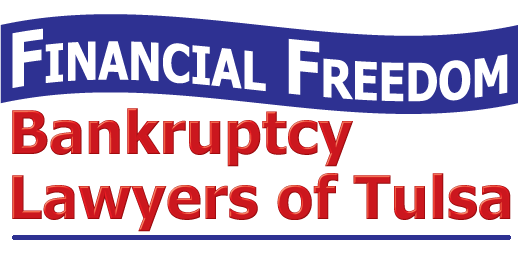Oklahoma Bankruptcy HelpYour Property and Oklahoma Bankruptcy Exemptions
 What are Exemptions and How Do They Work In a Bankruptcy?
What are Exemptions and How Do They Work In a Bankruptcy?
Filing bankruptcy, whether Chapter 7 (liquidation) or Chapter 13 (reorganization), does not mean that you have to lose all those assets that you have worked to get in your life. U.S. Bankruptcy Code provides exemptions for certain assets.
For purposes of bankruptcy, these assets are not made available to any creditors. This means that when you file for bankruptcy, you get to keep certain items of property.
Oklahoma Bankruptcy Laws
Each state is authorized under U.S. law to establish their own bankruptcy exemptions. Both Oklahoma and federal bankruptcy exemptions and residency requirements may change from time to time.
Although some states allow you to choose between using state and federal exemptions, in Oklahoma, you must use the Oklahoma exemptions. These exemptions are specific and change from time to time.
If you make a mistake in claiming your exemptions, you could lose valuable property unnecessarily. Therefore, it is important to have an experienced Tulsa bankruptcy attorney review your assets in the context of current law.
Bankruptcy Exemptions in Oklahoma
Oklahoma bankruptcy exemptions are generous. Most people filing for bankruptcy are worried about what will happen to their accrued property: mostly their home, car, and retirement accounts.
Home Exemption
The home exemption applies to all kinds of homes, including manufactured homes, as long as the home is your principal residence. The entirety of the home is exempted as long as it is located in a town or city and doesn’t exceed one acre in land. In a rural location, this exemption can be used to protect up to 160 acres of property. Okla. Stat. tit. 31 § 1
There is a limitation as to the amount of the property used for business purposes, but there are ways to deal with this limitation. Make sure and talk to an experienced attorney about this if you use your property for business purposes.
Vehicle Exemptions
You can exempt up to $7,500 of the value of your vehicle.
Retirement Accounts
Pension, IRAs, Roth IRAs, and other tax-exempt monetary vehicles such as trusts, custodial accounts, insurance contracts, annuities, and the like are exempt property. This area is complex and certain limitations apply. Depending on the source and type of the account, differing laws apply.
For example, if you are a public employee, your retirement is exempted under Okla. Stat. tit. 74 § 923.
All ERISA qualified plans, IRAs, Roth IRAs, Education IRAs, and Keoghs are protected.
However, QDROs (Qualified Domestic Relations Orders) of benefits are treated differently. Thus, you should work with an attorney if a QDRO is involved in either your bankruptcy or the bankruptcy of an ex-spouse.
Miscellaneous Personal Property Exemptions
Generally, personal property used within the home, including furniture, is usually exempt. This includes:
- books,
- clothing,
- food,
- a computer, and
- wedding rings up to $3,000.
In addition, college savings accounts are exempt.
Because exemptions change from time to time, it is best to consult with an attorney when filing for bankruptcy protection.
Initial Strategy Session: Tulsa Bankruptcy Attorney
Many Oklahoma bankruptcy filers who own homes, furnishings, and retirement accounts discover most or all of their property is exempt.
To find out if you qualify for debt relief under the U.S. and Oklahoma bankruptcy laws, and to learn what property can be held as exempt under Oklahoma bankruptcy law, call Financial Freedom Bankruptcy Lawyers of Tulsa at 918-786-9600.




